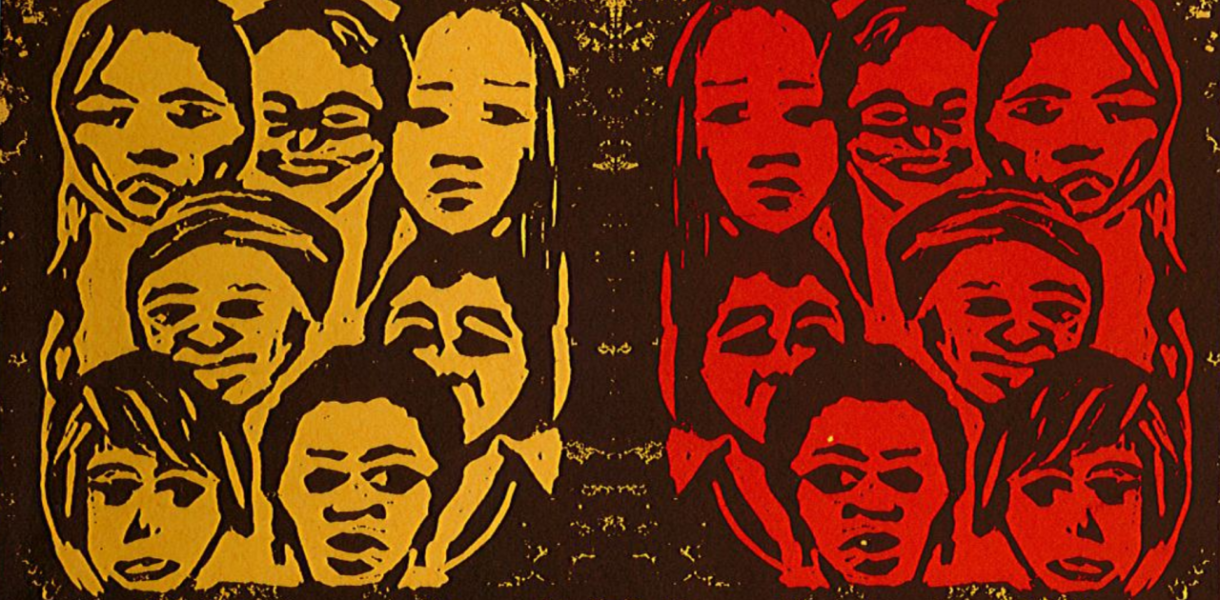Introduction
This year Karl Marx would have celebrated his 202nd birthday, originally a journalist by profession, he was known for radical nuances in his writing and strong criticisms against the political and cultural establishments of his day, which eventually led to his expulsion by the governments of Germany, France and Belgium[1]. A revolutionary at heart, Marx was a strong critic and a rebel at large. His belief in a classless society and his quest for the abandonment of Capitalism still resonates with thousands across the globe. No work in the world has gained quite the traction and debate as his work Das Kapital, which is also referred to as his most important work of all time. His Magnum Opus as well as his concurrent works have offered insights into labour, patriarchy, capitalism and their very relevant connection to Women, which has inspired a new stream of consciousness to appear in the world in the form of ‘Marxist- Feminists’. Throughout the course of this article, we will understand Karl Marx and his theories, his valid critiques against Capitalism and how the case for Feminism has been initiated by him.
Marx and the Classless Society
Marx’s work offers an insight into the powerful and relevant criticisms of the modern world and its several systems. Today, Marx is known all over the world for his passionate and fiery critiques toward Capitalism, however, his cultural and significant philosophical arguments have been ignored by several academicians and the media, alike. Marx was highly inspired by Hegel’s work, in fact, most of his early work can be attributed to his critiques and implications related to Hegel’s stream of thoughts. Hegel backed a Prussian state and saw Christianity as a partial reflection of the complete truth. Marx, on the other hand, thought of himself as a follower of the German Left, or Young Hegelians, which included David Strauss, Bruno Bauer, Ludwig Feuerbach, and Max Stirner. These were extreme atheists who said that Christianity was a manifestation of human alienation and that it needed to be abolished to make room for a new, humanistic religion.
Most significantly, Feuerbach saw Hegel’s theoretical approach as an obscuring of human experience’s actuality, and he assigned himself the job of demystifying it.[2] The qualities of God, according to Feuerbach, are essentially human attributes; mankind, estranged from his true self, perceives that alienated self as an oppressive authority that he is obliged to worship. This argument intrigued Marx, but he critiqued it for being inadequate because it relied solely on awareness or consciousness. If one intends to modify man’s connection to the “divine,” exposing the human foundations of religion has no effect; what must be done is to eliminate the material conditions that make religious estrangement essential. This is when Marx offers his own contributions against Capitalism. He further stated that Men have legal rights and equality, but their rights are powerless because our living situations are uneven.
The Classless Society
Marx regarded society as a competition for social, material, and political resources such as food and shelter, employment, education, and leisure time among individuals from various social strata. Government, education, and religion are examples of social institutions that reflect this rivalry in their inherent disparities and contribute to the uneven social structure.[3]According to Marxist ideology, early communism, or tribal hunter-gatherer culture, was classless. As a member of the tribe, everyone was fundamentally equal, and the many functional assignments of the ancient mode of production, however strict and stratified they could be, did not and could not establish a class society just because of the numbers. With the shift to agriculture, the ability to generate a surplus product, that is, to produce more than is required to meet one’s immediate requirements, grew as the productive forces evolved. This also allowed for the development of a class society since excess products could be exploited.
Superstructure
Despite the fact that his work has numerous critics, it is nevertheless well recognised and influential. The idea of “base and superstructure” was central to Marx’s conception of society. This phrase relates to the concept that a society’s economic nature serves as its foundation, upon which the culture and social institutions, or superstructure, are built. According to Marx, the foundation (economy) defines the nature of society. [4]
Societal Conflict Theory
In addition, Marx regarded societal struggle as the fundamental source of transformation. In terms of economics, he perceived a battle between the owners of the means of production (the bourgeoisie) and the workers (the proletariat). These conflicts, according to Marx, recurred throughout history at periods of social upheaval. These upheavals, which he dubbed “class antagonisms,” were the consequence of one class conquering another. With the fall of feudalism, the proletariat labourers were ruled by a new revolutionary class he dubbed as the bourgeoisie.[5]
False Consciousness
The concept of false consciousness is another concept established by Marx. False awareness is a state in which a person’s ideas, goals, or ideology are not in their best interests. The ruling class’s ideology (in this case, that of the bourgeoisie capitalists) is forced on the proletariat. Industry owners obviously profit from ideas like putting a premium on competition over collaboration or treating hard effort as a prize in and of itself. As a result, employees are less likely to challenge their role in society or take personal responsibility for the current state of affairs. Marx advocated that false consciousness be replaced with class consciousness, or knowledge of one’s social station, in order for society to overcome it. Instead of being a “class in itself,” the proletariat must become a “class for itself” in order to effect social change[6], implying that rather than being a passive social stratum, the class might become an advocate for social reforms. Only when society has reached this level of political awareness will it be prepared for a social revolution. Looking at the current social and revolutionary scenario, we can attribute the #MeToo movement as an idea that was concurrent with the realisation of class consciousness.
Capitalism
According to Karl Marx, the capitalist dynamic will inevitably bankrupt the working class, creating the social conditions for a revolution. Private ownership of the means of production and distribution is regarded as causing non-owning classes to become reliant on the ruling elite, and eventually as a source of human freedom restrictions.[7]
Marx- Society, Feminism and Inequality
Both feminism and Marxism predate the concept of a world free of gender discrimination and class exploitation. Gender and class tensions have woven themselves into the fabric of human history. Gender and class conflicts (together with private property, family, commerce, war, armies, governments, laws, and literature) are social constructs of recent beginnings, going back roughly eight to ten millennia in the lengthy history of Homo sapiens (a few hundred thousand years). Because of the proximity in time, a simple yet significant question arises: Why do these inequalities still exist?
Lenin noted that ‘one of the principal distinguishing features of capitalism’ is that it ‘combines formal equality with economic and, consequently, social inequality’[8]. The complexities required in the deconstruction of class and patriarchy have been illuminated by Marxist theory. Society as a whole is a system, a social formation, or a method of production, and class, gender, race, religion, and other social phenomena, far from being self-contained, exist in determined and conflicting connections as a system, a social formation, or a mode of production. The fact that this system and its components can only survive by replicating themselves is also crucial. Marx, in his study of capitalist production, noted that ‘When viewed … as a connected whole, and as flowing on with incessant renewal, every social process of production is, at the same time, a process of reproduction’[9]
Through this notion, patriarchy and gender inequality in the present scenario may be understood as a linked totality, a social process that produces and reproduces the gender hierarchy marked by male dominance. Male authority, like class control, is based on coercion and consent; consent is gained through family, church, ideology, culture, language, literature, art, folklore, education, and other cultural institutions, whilst physical violence is performed by males, police, soldiers, the law, and courts. There is no obvious distinction between the two; for example, the family commits violence while also generating consent.
The economic determinist approach in Marxism and, more notably, in communist movements has reduced gender relations to class connections, as is well known. This anti-dialectical interpretation of Marxism is predicated on combining class and gender and limiting the political to the economic. It fails to recognise that class is not the same as gender, and that the battle over gender relations (patriarchy) is a political struggle between and within classes through which societal differences are still apparent[10]
In the same way that autonomous production of the means of life was both a result of and fostered by a “growth in population,” the division of labour evolved in tandem with requirements on the basis of surpluses that created, in turn, more surpluses. The potential of separate persons possessing ‘pleasure and labour, production and consumption’ was also included in the division of labour. As a result, it was both a prerequisite for dominance and progress. The ability of several to dispose of the labour-power of many in the creation of the means of existence had controlled the development of history, as had the power of (the majority of) males to dispose of women’s labour-power, reproductive potential, and the sexual body of women in the ‘family.’[11]
‘As soon as more property had been collected… and an ever-greater share was in private hands, the female line of succession (owing to inheritance) was ready for abolition,[12]‘ Marx wrote again, without more explanation. The father’s lineage was now established (patrilineal). This was made feasible, among other things, by the fact that the progressively developing ‘political’ positions of authority (chieftains, councillors, and judges) were all filled by males. Marx mentions familial persecution within the upper classes in his 1846 essay/translation of Peuchet’s study on suicide.
The upper classes are oppressed by their families as well, according to Marx. Three of Marx’s four instances involve female suicide as a result of familial persecution. A married lady committed suicide in one case, at least in part as a result of her jealous husband confining her to the house and abusing her physically and sexually. An engaged woman spent the night at her fiancé’s residence in the second example. Her parents publicly ridiculed her once she came home, and she later drowned herself. The last instance was a young woman’s inability to have an abortion following an affair with her aunt’s spouse.[13]
The concept that capitalism characterises the working-class population solely as “instruments of production” to be exploited by the “bourgeois” was at the heart of Marx’s critique of capitalism. Marx, along with his close friend and compatriot Frederick Engels, argued that women were systemically oppressed by the ruling class, being treated as second-class citizens, and argued for the elevation of women’s status both in the domestic sphere and in the wider social environment in his Communist Manifesto.[14]
Marxist feminism is a philosophical feminism that integrates and expands Marxist philosophy. Marxist feminism investigates the ways in which women are exploited by capitalism and private property ownership. Women’s emancipation, according to Marxist feminists, can only be accomplished by deconstructing capitalism institutions, in which much of women’s labour is uncompensated. Marxist feminists apply classic Marxist theory to unpaid domestic work and sex interactions, expanding on traditional Marxist analysis.[15] When agriculture initially became abundant, and the richness was viewed as male riches since it originated from a male work environment away from the house, a stronger desire for male lineage and inheritance arose. In order to fulfil that goal, women were not only given but also forced into monogamy as part of domestic slavery, while men followed a quiet culture of “hetaerism.” This condition, according to Engels, coincided with the emergence of forced slavery as a major element of society, eventually leading to a European culture of class oppression, in which the offspring of the poor were expected to serve the affluent.[16]Gender oppression is perpetuated by institutionalised inequalities and is replicated culturally. Men are given preferential treatment at the expense of women, and traditional household work is not valued equally.
Labour was divided into two types by Marx: productive and unproductive.
- Work that generates surplus value, such as the production of raw materials and the manufacturing of goods, is referred to as productive labour.
- Unproductive work does not produce excess value, and it may even be supported by it.
Margaret Benston and Peggy Morton, Marxist feminist authors of the 1970s, used analysis of productive and unproductive labour to try to shift the perception of the time that a family’s purpose was consumption, presenting arguments for a state-paid wage for homemakers, and a cultural perception of the family as a productive entity. The task of raising a family has little material worth in capitalism since it creates no marketable goods. The upkeep of a family is productive under Marxism because it has a service value and is utilised in the same way that a commodity is.[17]
Some Marxist feminists pushed for the integration of domestic labour into the paid capitalist economy, focusing on exclusion from productive labour as the most fundamental cause of female oppression. In the writings of socialists such as Charlotte Perkins Gilman, who believed that women’s oppression originated from being pushed into the domestic sphere, the notion of compensating reproductive work was evident. Gilman maintained that women’s situations would improve if their labour was acknowledged, appreciated, and situated in the public realm.[18]
In the spirit of examining forms of oppression at the point of production, many Marxist feminist academics have noted the impact of housework on women in a capitalist society. The notion of housekeeping is used in Angela Davis’ Women, Race, and Class to dismantle the capitalist construct of gendered labour within the home and to demonstrate how women are exploited through “domestic slavery.” To address this, Davis claims that “socialisation of housekeeping – including food preparation and child care – requires an end to the profit motive’s dominion over the economy.” Domestic slavery perpetuates the fundamental disparities that women suffer in all capitalist economies in this way.[19]
Many Marxist feminists have recently switched their emphasis to the ways in which women’s situations may have deteriorated as a result of obtaining access to productive labour. Feminist groups, according to Nancy Folbre, should begin to focus on women’s subordinate status to males in both the reproductive (private) and workplace spheres (public sphere). Silvia Federici urged feminist groups to recognise the fact that many women are now obliged to work both productive and reproductive labour, resulting in a double day, in a 2013 interview. Federici contends that women’s liberation will not come until they are free of the burden of unpaid work, which she thinks will entail a number of steps.
Marxism and feminism both provide explanations for how social structures of structured and accumulated inequality may be internally logical and methodical while remaining inequitable. Both are conceptions of power, its social origins, and its inequity. Both ideas are about socioeconomic inequity.
Gender, together with sexual desire and familial relationships, as well as value and acquisitiveness, and the many kinds of property ownership, are regarded prosocial, part of the natural world, primordial or magical, or aboriginal in unequal societies. Feminism reveals desire as socially relational, intrinsically necessary to unequal social systems but historically contingent, in the same way that Marxism exposes value as a social construct.
Since the Women’s Liberation Movement’s inception in the late 1960s, significant progress has been made in extending women’s socioeconomic and political agency. For example, women’s involvement in the labour force has increased dramatically. However, many cultures have failed to confront the very real issue of the ‘glass ceiling,’ which manifests itself in the lack of women in positions of power in industry and politics. Governments have also been dragging their feet on reforming outdated reproductive rights legislation. The Women Liberation Movement’s long-term impact on society has been good, but for a more transformational effect, a shift in general public consciousness is required, as Marx and others have suggested.
It is necessary to understand that while one may assume that the issue of Feminism has been sorted due to the recent advances in the sphere of feminism such as the Me-Too movement and amongst others, it is equally important to realise that this struggle for freedom and being on par with men without inequality running in our streams of consciousness has been one, which is long drawn. For women to occupy better positions in the society, there needs to be an amalgamation of correct consciousness along with concrete steps, better yet in the words of Marx himself ‘We make our own history, but not under circumstances chosen by us; we are constrained by circumstances already existing and given and transmitted from the past.’[20] Another dialectic reverberates in this one: ‘liberty.’ is the recognition of ‘necessity,’ according to Hegel. However, need – That is, past and present conditions cannot be changed. Only via recognition or interpretation is this possible. However, as Marx put it in another context, theory engages in interpretation, since it is difficult to alter reality. To put it another way, metamorphosis happens when matter becomes conscious, and consciousness becomes conscious into a substance. The growth of feminist consciousness and reform can only be possible when the resolve of women as a new social and political force reshapes the tangible reality of repressive and inequitable gender relationships.
About The Author
Loreal Sahay is a second year student pursuing B.A LLB from GGSIP, University School of Law and Legal Studies, Delhi
References
-
HISTORY. 2009. Karl Marx. [online] Available at: <https://www.history.com/topics/germany/karl-marx> [Accessed 21 July 2021]. ↑
-
Marx, K., Easton, L. and Guddat, K., 1997. Writings of the young Marx on philosophy and society. Indianapolis, Ind.: Hackett Pub. Co. ↑
-
Blaug, M. and Steele, D., 1993. From Marx to Mises: Post-Capitalist Society and the Challenge of Economic Calculation. The Economic Journal, 103(421), pp.37 and 65. ↑
-
Blaug, M. and Steele, D., 1993. From Marx to Mises: Post-Capitalist Society and the Challenge of Economic Calculation. The Economic Journal, 103(421), pp.37 and 65. ↑
-
Corporate Finance Institute. 2021. What is Conflict Theory? – Karl Marx, Never-Ending Competition. [online] Available at: <https://corporatefinanceinstitute.com/resources/knowledge/economics/conflict-theory/> [Accessed 24 July 2021]. ↑
-
Marx, K., Engels, F., Harvey, D. and Moore, S., 2008. The Communist Manifesto, Pluto. ↑
-
O’Hara, P., 2001. Encyclopedia of political economy. London: Routledge. ↑
-
Lenin, V., 1977. A Great Beginning. 9th ed. Peking: Foreign Languages Press, pp.408-34. ↑
-
Marx, K., Engels, F., Harvey, D. and Moore, S., 2008. Communist Manifesto, Pluto. ↑
-
Mojab, S., n.d. Marxism and feminism. pp.7 to 200. ↑
-
Mojab, S., n.d. Marxism and feminism. pp.7 to 200. ↑
-
Marx, K., Engels, F., Harvey, D. and Moore, S., 2008. Communist Manifesto, Pluto. ↑
-
n.d. [online] Available at: <https://monthlyreview.org/2014/06/01/marx-on-gender-and-the-family-a-summary/> [Accessed 24 July 2021]. ↑
-
n.d. [online] Available at: <https://monthlyreview.org/2014/06/01/marx-on-gender-and-the-family-a-summary/> [Accessed 24 July 2021]. ↑
-
Armstrong, Elisabeth, “Marxist and Socialist Feminism” (2020). Study of Women and Gender: Faculty
Publications, Smith College, Northampton, MA. ↑
-
Engels, F. and Engels, F., n.d. The origin of the family, private property and the state. ↑
-
Vogel, L., 2013. Marxism and the oppression of women. Leiden: Brill. ↑
-
The Guardian. 2021. A life in writing: Selma James. [online] Available at: <https://www.theguardian.com/books/2012/jun/08/life-in-writing-selma-james> [Accessed 24 July 2021]. ↑
-
1981. Davis, Angela. “Women, Race and Class”. Marxists Internet Archive. Retrieved 2020-04-16. ↑
-
Marx, K., Engels, F., Harvey, D. and Moore, S., 2008. The Communist Manifesto, Pluto. ↑




